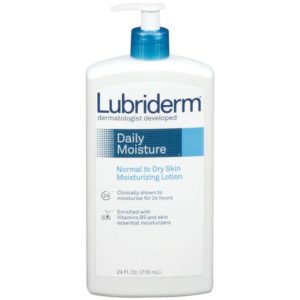 Yes, the chemicals in personal care products and cosmetics you use absolutely get into your body, have effects, and can be measured in the urine. Of especially big concern are the endocrine (hormone) disrupting chemicals such as phthalates, parabens, triclosan, and oxybenzone (BP-3). This study shows that even taking a 3 day break from these chemicals lowers their levels in your body. The researchers found that : "The adolescent girls in this study experienced an average within girl decline of 27-45% in urinary concentrations of certain phthalates, certain parabens, triclosan, and oxybenzone after three days of abstaining from conventional personal care products and using replacement products with labels indicating they did not contain these chemicals."
Yes, the chemicals in personal care products and cosmetics you use absolutely get into your body, have effects, and can be measured in the urine. Of especially big concern are the endocrine (hormone) disrupting chemicals such as phthalates, parabens, triclosan, and oxybenzone (BP-3). This study shows that even taking a 3 day break from these chemicals lowers their levels in your body. The researchers found that : "The adolescent girls in this study experienced an average within girl decline of 27-45% in urinary concentrations of certain phthalates, certain parabens, triclosan, and oxybenzone after three days of abstaining from conventional personal care products and using replacement products with labels indicating they did not contain these chemicals."
Bottom line: Read the ingredient lists of all personal care products and try to avoid those with phthalates, parabens, triclosan, and oxybenzone (BP-3). Try to buy "unscented" or "fragrance-free" products.The site ewg.org also has lists of personal care products to avoid, and rates many products. From Science Daily:
Teen girls see big drop in chemical exposure with switch in cosmetics
A new study led by researchers at the University of California, Berkeley, and Clinica de Salud del Valle de Salinas demonstrates how even a short break from certain kinds of makeup, shampoos and lotions can lead to a significant drop in levels of hormone-disrupting chemicals in the body. The results, published Monday, March 7, 2016 in the journal Environmental Health Perspectives, came from a study of 100 Latina teenagers participating in the Health and Environmental Research on Makeup of Salinas Adolescents (HERMOSA) study.
Researchers provided teen study participants with personal care products labeled free of chemicals such as phthalates, parabens, triclosan and oxybenzone. Such chemicals are widely used in personal care products, including cosmetics, fragrance, hair products, soaps and sunscreens, and have been shown in animal studies to interfere with the body's endocrine system.
"Because women are the primary consumers of many personal care products, they may be disproportionately exposed to these chemicals," said study lead author Kim Harley, associate director of the UC Berkeley Center for Environmental Research and Children's Health. "Teen girls may be at particular risk since it's a time of rapid reproductive development, and research has suggested that they use more personal care products per day than the average adult woman."
Analysis of urine samples before and after a three-day trial in which the participants used the lower- chemical products found significant drops in levels of these chemicals in the body. Metabolites of diethyl phthalate, commonly used in fragrances, decreased 27 percent by the end of the trial period. Methyl and propyl parabens, used as preservatives in cosmetics, dropped 44 and 45 percent respectively. Both triclosan, found in antibacterial soaps and some brands of toothpaste, and benzophenone-3 (BP-3), found in some sunscreens under the name oxybenzone, fell 36 percent. Surprisingly, there was a small increase in concentrations in two less common parabens. Those levels were small and could have been caused by accidental contamination or a substitution not listed on the labels, the study authors said.
The researchers noted that cosmetics and personal care products are not well-regulated in this country, and that getting data about health effects from exposure, particularly long-term ones, is difficult. But they say there is growing evidence linking endocrine-disrupting chemicals to neurobehavioral problems, obesity and cancer cell growth. (Original study.)
